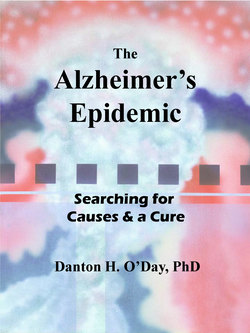Читать книгу The Alzheimer's Epidemic - Danton O'Day - Страница 11
На сайте Литреса книга снята с продажи.
We All Forget Things but Alzheimer’s Is Different
ОглавлениеWe all forget things. Where did we put our keys? What’s the name of this person I just bumped into in the mall? These are short-term memory losses everyone faces—but what would it be like to forget everything? To forget the people we love? To not remember where we live? To not know who we are? As if that’s not bad enough, there is also the loss of the ability to reason. Ultimately all communication with the world around you can be lost. These are some of the effects of Alzheimer’s disease—a progressive and irretrievable loss of memory, a slow descent into a new world that cannot be understood.
We all know when we have forgotten something or can’t remember something else. But what do we do when we can’t remember what we’ve forgotten? Where do our memories go when we develop Alzheimer’s disease? Do they go to a place so hidden away that they can’t be found? Or do they remain in the same place but the route to finding them is gone, like a lost treasure map? Is it more basic than that? Do our memories simply get erased? Are they completely removed so they can never be remembered again?
All of these possibilities are the product of brain activity that is progressively lost as Alzheimer’s disease onsets and progresses to full-fledged dementia. Since the brain is an organ, it is made up of cells. A large number of these cells are specialized nerve cells or neurons. Neurons, through their interactions with other neurons and other cells in the brain, serve to process incoming information and to store this information as the basis of our memories. Thus, in one way or another, our memories are stored within cells in our brains. Because neurons are the primary unit of brain function, Alzheimer’s disease can be considered a disease of brain cells.
